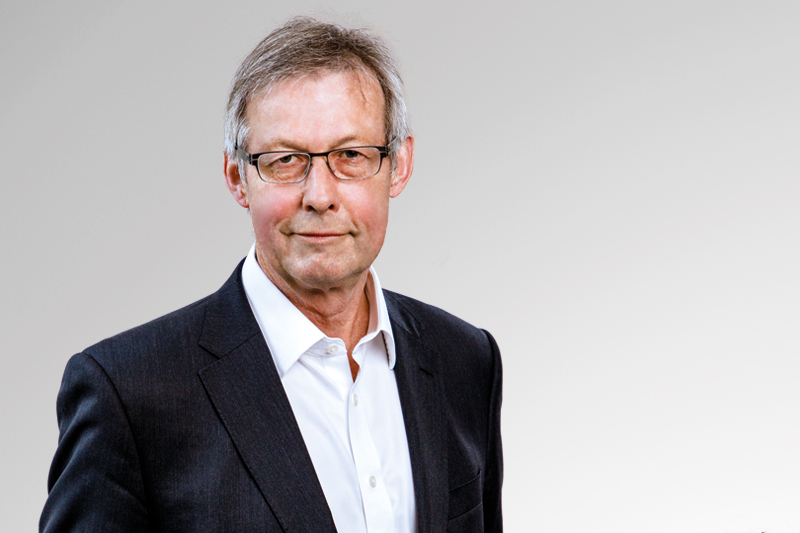 After 19 years as a non-exec board member, company founder Jim Steer will be stepping down from the board this October.
After 19 years as a non-exec board member, company founder Jim Steer will be stepping down from the board this October.
Having rejoined the board in 2005, after moving away from a direct leadership role in 2002, Jim has been a valued voice of experience during a period that has seen huge economic and political change.
The need to respond to shifting global headwinds has been a constant theme for Jim throughout his consulting career. Now, as we navigate a challenging market, these lessons of flexibility and agility have never been more important.
Steer’s origins
Roughly a decade before Jim founded Steer, he began work in consultancy after graduating with a degree in Civil Engineering, completing his thesis in the then-burgeoning field of transport planning. Jim went on to work in consultancy for nine years before founding Steer Davies Gleave alongside two ex-colleagues, John Davies and Graham Gleave, who were at that time acting as individual consultants in Brazil and Mozambique, respectively.
“The company was a partnership for three people but with a broad spread of complementary skills working in the transport field. The vision was to go out and win the most interesting projects we could find,” says Jim.
One of Steer Davies Gleaves’ first project wins was a competitive tender to estimate demand for the proposed Manchester Airport rail link. This led to a stream of work for British Railways Board, which was nationalised at that time, including the first application of conjoint analysis (and stated preference) in the UK.
”You can only innovate like this provided you have built a good trusting relationship with your client,” he adds.
Innovating to stay ahead
The rise of free market economics in the 1980s presented some interesting challenges in transport, but “there was no interest in planning anything,” says Jim.
“The idea that you would look at a city such as Manchester, Newcastle, or wherever and ask what its future transport needs were had gone.
“That was interesting because what are you going to do as a transport consultant?”
For the next 25 years, Jim and a growing team of super-capable people answered the question of ‘what to do as a transport consultant’ in creative ways that were responsive to market conditions. Jim found himself working on assignments in Australia, New Zealand, Pakistan, Indonesia, Spain, Ireland, and the USA.
In the 1980s, amid an environment of financial deregulation in the UK, a group of American banks were trying to set up trading floors on the site of the disused docklands of inner East London. ”Financial markets were being deregulated, but they just couldn't get a foothold in London’s traditional financial centre, ‘the City’, and they were desperate,” says Jim.
“Earlier, we had helped a major US architectural practice, Skidmore, Owings and Merrill. I'd helped them with a couple of projects, and they were trying to get into the UK market, and they'd been appointed by the developers of Canary Wharf.”
“Peter Twelftree gave them a knockout presentation and developed the project from there. It was a very long-lasting association for us, and a huge number of people contributed to it.”
The 1990s likewise presented opportunities in the form of rail privatisation. In the early days of Steer Davies Gleave, Jim had been asked to develop a business strategy for BR’s new InterCity rail business. This meant that he and the company understood the realities around the commercial possibilities of rail businesses set up as franchises when British Rail came to be privatised. Now, he was able to use this to help UK businessman Richard Branson – win the West Coast mainline franchise. It is now seen as a positive outlier in the story of Britain’s experience of rail privatisation, one which achieved its highly challenging franchise mission.
“This was hands-on consulting, building the Virgin Rail Group from scratch and negotiating its key contract to upgrade the West Coast Main Line,” says Jim.
“People have a negative view of rail privatisation now, but Virgin had a franchise that committed them to trebling the number of people travelling by train out of Euston, and they did it. It's an unbelievable achievement and, for me, unparalleled as a consultant: you couldn't ask for anything better.”
Steer’s future
Today, Steer is a much larger business that has diversified from transport to energy, economic development, sports and events, and more. One thing that Jim Steer says remains the same, however, is the need to be agile, creative and resourceful in an ever-changing world.
Looking forward, Jim will still play a role within the business, supporting Steer’s participation in industry bodies, seeking out market intelligence, and also inputting to the Learning and Development programme. Jim will also explore ways of reaching out to young and school-age people, helping them explore career options and learning about transport, planning, infrastructure, and consultancy.
How will Jim fill his time outside of Steer?
“I run a little transport research group (Greengauge 21) that seeks to pose questions that are sometimes seen as awkward and make suggestions, taking more of a challenging perspective than is appropriate to large-scale consulting practices, and I will keep that running, with the help of others.
“I think my days of sailing in remote and wonderful places like Tonga are over, but I have a river boat that keeps me amused. But the truth is that the first thing that comes to my mind is family. I’ve got a big family; it’s still growing and that means an awful lot to me as it does to most people.”
On behalf of everyone at Steer, past and present, thank you, Jim!
 After 19 years as a non-exec board member, company founder Jim Steer will be stepping down from the board this October.
After 19 years as a non-exec board member, company founder Jim Steer will be stepping down from the board this October.